Our History
Stand up and join the ranks of countless millions, past and present, in Britain and around the world!
The year 2021 marks one hundred years of the Young Communist League of Britain! A momentous occasion for us to celebrate our history and to reflect on the numerous struggles our members fought, and the great achievements they made over the years. This history below is brief, and doesn’t do it justice, but it will give you an idea of the very heart of our organisation, as we carry it forward into the struggles to come…
The Young Communist League was founded at a special Unity Conference held from 20 to 26 August 1921 in Birmingham, merging the Young Workers’ League and the International Communist School Movement. After the decision was agreed by branches, the YCL was constituted in October 1921.
In 1923, William Rust, who would later attend the Comintern and become first editor of the Daily Worker (now the Morning Star) in 1930 and Spanish Civil War correspondent, was elected General Secretary.
The YCL was proactive at organising young workers in Britain’s industrial centres as well as sports and cultural activities in organisations like the British Workers’ Sports Federation.
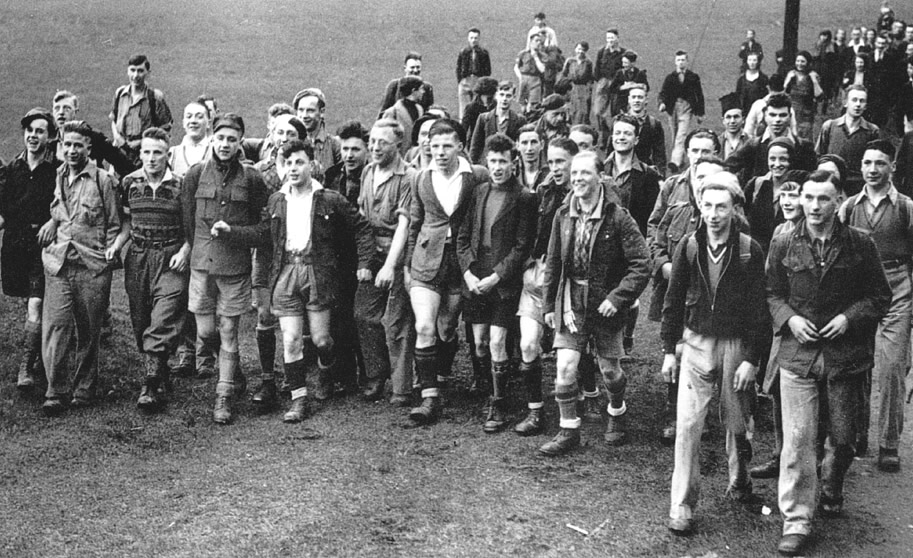
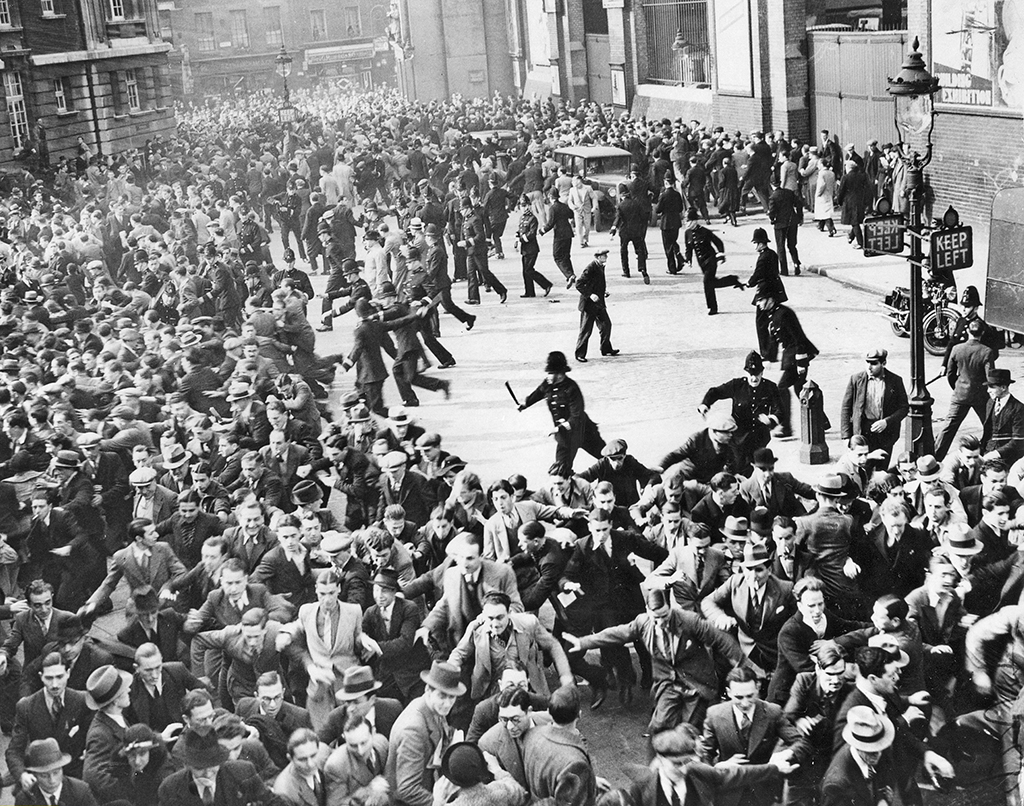
In 1932, Benny Rothman and other YCLers led hundreds of people on a mass trespass of Kinder Scout, fighting for the right of British workers to enjoy the countryside. Acts like this led to our right to roam today.
During the 1930s, the League also mobilised to defeat fascism at home and abroad. In Britain many fought and protested against Oswald Mosley, and his British Union of Fascists, most famously at The Battle of Cable Street in 1936. After the victory of preventing the BUF from marching through the East End of London, many YCL members volunteered to join the International Brigades and defend the Spanish Republic from Franco, Hitler and Mussolini. From Britain & Ireland an estimate of more than 2,500 people volunteered, with as many as 80% of them being members of the Communist Party of Great Britain and its Young Communist League. Records from the International Brigades Association indicate that 923 were listed as members of the Communist Party and 169 were listed as members of the Young Communist League.
At home, Communists led efforts to improve workers’ rights and living conditions. By this time, there were Communist councillors and Members of Parliament.
During the Second World War, the Communist Party campaigned to take the fight to Hitler, open a second front in Europe and smash Nazi-Fascism. Communists and other progressives led resistance on the occupied Channel Islands.
Communists including Spanish Civil War veterans were active in the armed forces and fought for protection from bombs at home, breaking into Tube stations in London so that they could be used as air raid shelters.
By the 1950s, the Communist Party had established a strong reputation in the minds of British workers.
Before Britain and the United States began the Cold War in earnest, this was helped by the wartime alliance with the Soviet Union.
Communists were rock solid throughout the working class movement, in particular the trade union movement.
Communists took a leading role in the struggle against fascist groups, racism and discrimination in Britain and for freedom for the British colonies.
In the 1960s, the League threw itself into building solidarity campaigns and the peace movement, such as the Campaign for Nuclear Disarmament.
The YCL donated blood, medical aid and hundreds of bicycles to support the Vietnamese people’s war against the United States invaders. We organised ride-ins to Trafalgar Square and flew the Vietnamese flag across Nottingham.
This crucial aid was collected with that of other progressive youth at the World Youth Festival in Sofia, Bulgaria and taken back to Vietnam by the Vietnamese delegates.
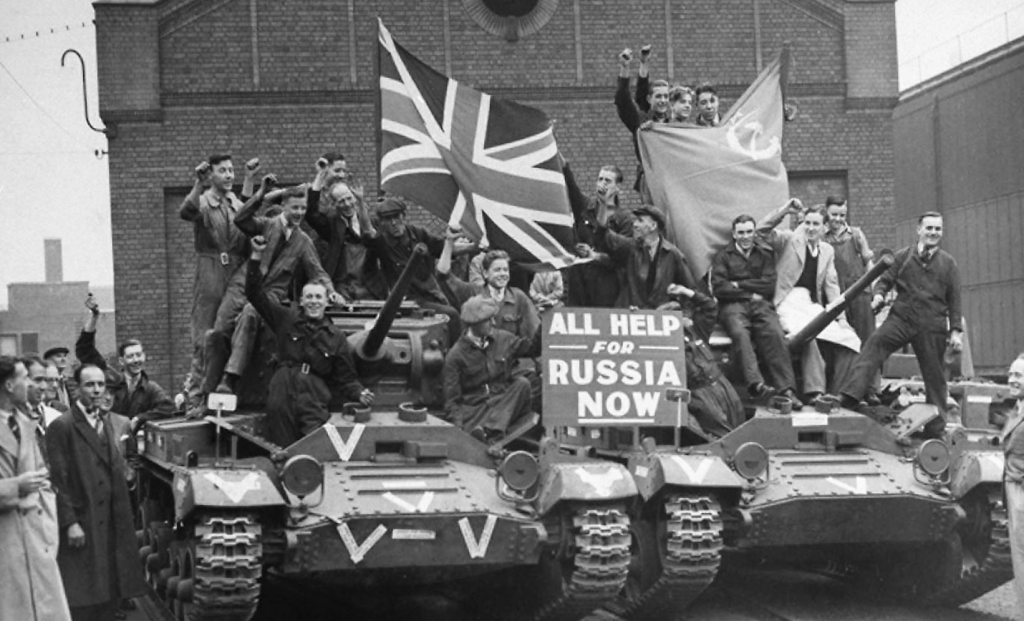
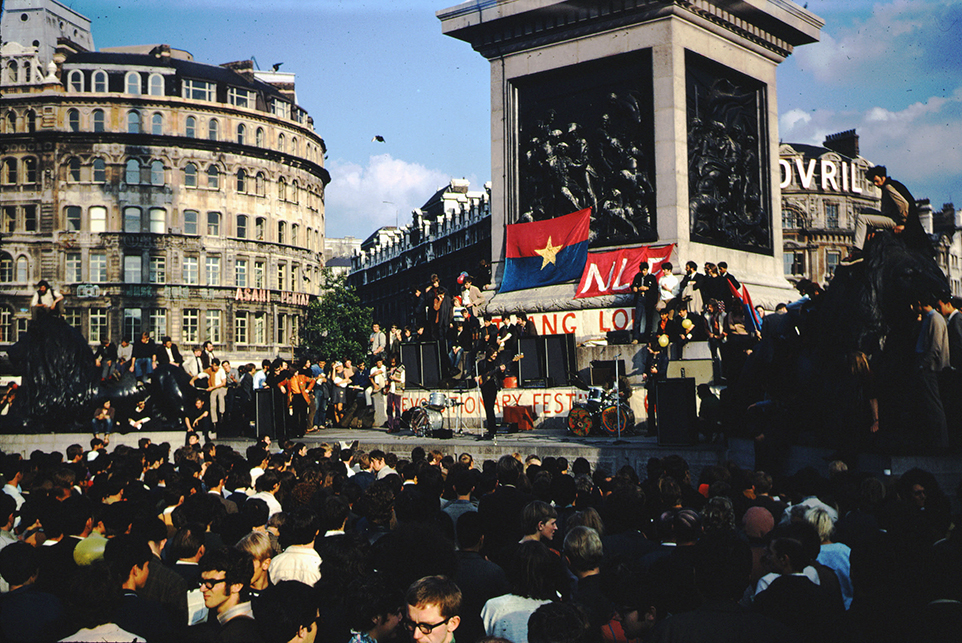
The YCL continued to coordinate leisure activities. At this time, the YCL had holiday camps and football teams and significant student organisation, echoing the 1930s. The League launched “The Trend is Communism” campaign in 1966.
Later an international youth festival was organised in Skegness, attended by a thousand people.
Members of the League made up the bulk of the so-called London Recruits. They were hand-picked volunteers who went to apartheid South Africa on behalf of the ANC and the South African Communist Party. They set up leaflet bombs (non-lethal) and broadcast messages telling the South African workers that despite the imprisonment and repression of Nelson Mandela and others, the struggle for the people’s liberation continued.
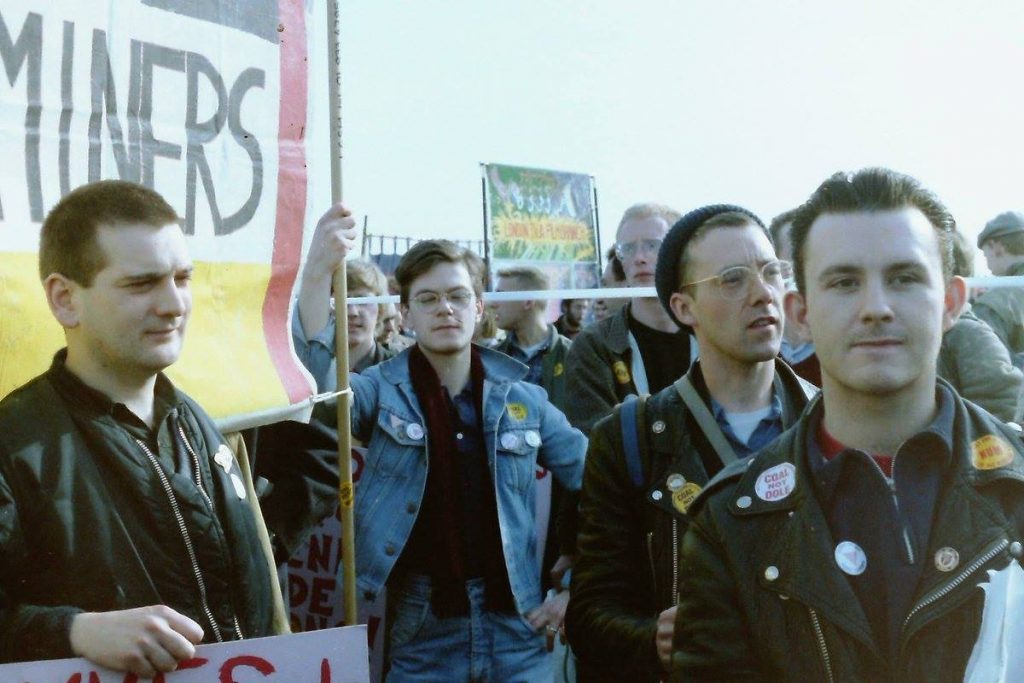
In the 1980s, our General Secretary Mark Ashton was a founding member of Lesbians and Gays Support the Miners (LGSM), commemorated in the 2014 film ‘Pride’.
LGSM came about to show solidarity from the LGBT+ community to the British miners during the year-long strike of 1984-5 against the Thatcher Government, which had prepared carefully for this massive declaration of war on the workers and their trade union movement and, within that, the Communist Party itself.
There were 11 LGSM groups throughout the country, and thanks to their acts of solidarity and comradeship, miners’ groups around the country endorsed pro LGBT+ policies in their Unions, in Parliament, and even marched en masse during the 1985 Gay Pride parade in London.
The sabotage of the Soviet Union in the early 1990s was a significant blow to the Communist movement in Britain as it was elsewhere, especially in Europe.
However, the YCL has remained an important part of the labour and progressive movement, campaigning on behalf of young workers and students and growing in size and influence, just as the labour and progressive movement in general has recovered from the aftermath of Thatcher and the years of Tony Blair.
Over the last decade, we have gone from strength to strength. Increasingly, we play a key role in the struggle for social and economic progress and for working class power and Socialism in Britain.
The Young Communist League has a long and proud history, and an even brighter future ahead of us.
Join us and become a part of that history and our future today!
100 YEARS. 100 MORE.
References:
- Britain’s Communists: The Untold Story, by John Green. Artery Publications, 2014.
- Communism in Britain, 1920-39: From the cradle to the grave, by Thomas Linehan. Manchester University Press, 2007.
- Our History, series by the Communist Party of Britain.
- Britain votes Communist, 1920-1991: The rise and fall of the Communist Party of Great Britain.
- Frosty’s Ramblings: Coppice Camp and other YCL pictures.
- Frosty’s Ramblings: Mark Ashton, Pits and Perverts.
- Morning Star: How the YCL helped win the Vietnam War.
Find out more about the London Recruits film here.